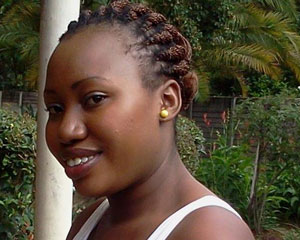
On Thursday, Harare’s Chinese-built National Sports Stadium which has failed to host premier league soccer matches due to the bad state of the pitch finally came out of its slumber and reverberated with the song and dance of a country commemorating 33 years of Independence.
Report by Dalphine Tagwireyi
The defence and other uniformed forces performed their usual drills marching up and down and pointing their guns at an imaginary foe, various musicians also performed for the thousands who thronged the stadium and a soccer match pitting the hand-picked Highlanders and Dynamos turned out to be the icing on the cake.
As always, President Robert Mugabe was on hand to give a speech describing colonialism as “a stubborn and obstinate beast, that would not yield to peaceful means of seeking a settlement to the question of majority rule.”
“Hence, it had to take an armed struggle to bring the settler colonialists to agree to majority rule,” Mugabe said as he mounted his hobby-horse of detailing how the liberation of this country was achieved. At every national occasion, Mugabe seizes the opportunity to remind Zimbabweans of his and Zanu PF’s role in liberating the country. The real question however is, 33 years after independence, should Zimbabwe be reflecting merely on this history, however important, while regressing in terms of tangible benefits?
While colonialism was repressive, marginalising the majority Africans and denying them democratic space and opportunities for economic advancement, Zimbabweans born after 1980 know nothing about the oppressive nature of the colonialists.
Theirs is still a grim struggle against poverty and political repression, which also begs the question of whether there is any real independence to talk about. Has a new black oppressor simply stepped in to fill in the shoes of the yesteryear white oppressor?
Thirty-three years on, politicians should stop focusing on past personal sacrifices, which do not improve Zimbabweans’ lives in the here and now. It is the time for them to take concrete action in implementing policies to finally bring the majority out of grinding poverty and repression into a new dispensation of democracy and economic opportunities.
- Chamisa under fire over US$120K donation
- Mavhunga puts DeMbare into Chibuku quarterfinals
- Pension funds bet on Cabora Bassa oilfields
- Councils defy govt fire tender directive
Keep Reading
On April 17 1980, in his Independence speech, Mugabe said, “As we become a new people, we are called to be constructive, progressive and forever forward looking, for we cannot afford to be men of yesterday, backward looking, retrogressive and destructive. Our new nation requires of every one of us to be a new man, with a new mind, a new heart and a new spirit.”
Clearly, the ululations from April 18 1980 have turned to cries that are falling on deaf ears. Yes, Zimbabwe was once a new nation but the order of today shows otherwise and like His Excellency rightfully pointed out, we cannot afford to be men and women of yesterday, but rather our new nation requires us to be new men.
With the current situation in modern day Zimbabwe, can one clearly define their freedom? This brings the question of what new developments the nation and its people have enjoyed since the attainment of Independence in 1980.
For the older Zimbabweans, Independence Day is a time to celebrate the end of the bloody Chimurenga, but surely they must regret that their children and grandchildren are suffering the same problems they suffered in Rhodesia.
For the youth, Zimbabwe is strife-filled as basic necessities are still luxuries for many. Unemployment is rife and freedom of speech remains shackled. Independence Day for them is therefore meaningless.











